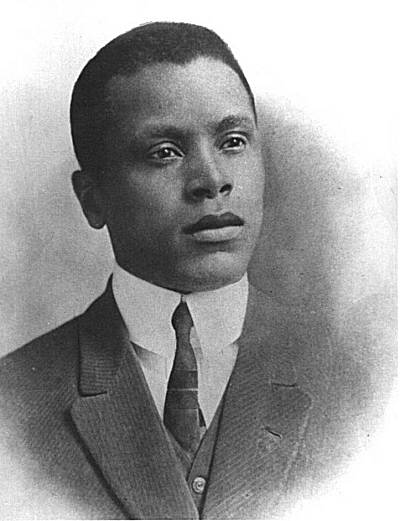
Oscar Micheaux was an African-American filmmaker whose movies sought to challenge racial segregation and create an outlet for black moviegoers. Throughout 1919 to 1948 he wrote, produced, and directed more than 40 films. Born near Metropolis, Illinois, he later moved to Chicago at age 17 and worked as a porter (somebody who carries objects for others) before moving to South Dakota to farm and write.
Micheaux's life experiences served as the subject matter for his novel, The Homesteader, which is largely regarded as the most famous of his books. In 1919, he produced a film of the novel. The movie is the first feature-length film made for a black audience. These types of films were known as "race films", from 1915-1950's these films included all black casts and were intended to be viewed by an all black audience. A sometimes controversial character, Micheaux continued to make films for the next three decades until his death on March 25, 1951, in Charlotte, North Carolina.
 Micheaux's second film, 1920's Within Our Gates, was his response to D.W. Griffith's Birth of a Nation, one of the most popular movies at the time that portrayed the racial hatred group the Ku Klux Klan in a positive way. Within Our Gates attempted to challenge Birth of a Nation's message by showing more realistic examples of white supremacy. In the movie, a biracial teacher Sylvia Landry goes up North to raise funds the school she worked at attended by African-American children. Within Our Gates was included very disturbing themes, showcasing the lynching of innocent blacks, the near rape of the main character Sylvia, and a dutiful preacher who secretly feels despair that he's selling out his own race.
Micheaux's second film, 1920's Within Our Gates, was his response to D.W. Griffith's Birth of a Nation, one of the most popular movies at the time that portrayed the racial hatred group the Ku Klux Klan in a positive way. Within Our Gates attempted to challenge Birth of a Nation's message by showing more realistic examples of white supremacy. In the movie, a biracial teacher Sylvia Landry goes up North to raise funds the school she worked at attended by African-American children. Within Our Gates was included very disturbing themes, showcasing the lynching of innocent blacks, the near rape of the main character Sylvia, and a dutiful preacher who secretly feels despair that he's selling out his own race. Micheaux's films were made during a time where there was great change occurring in the African-American community. His films featured contemporary black life and discussed racial relationships between blacks and whites, and the challenges for blacks when trying to achieve success in a predominantly white society. His films were used to oppose and discuss the racial injustice that African Americans received. Topics such as lynching, job discrimination, rape, mob violence, and economic exploitation were shown in his films. These films also reflected his ideologies and personal experiences.
Micheaux sought to create films that would counter the white portrayals of African Americans, which tended to emphasize inferior stereotypes. He created complex characters of different classes. His films questioned the value system of both African American and white communities as well as caused problems with the press and state censors.
Belen, I think you outlined his life in great detail, and showed how his achievements considering his background and the fact that he was african american in the heat of segregation are significant for not only his minority but for changes among all discriminations including female suffrage. He gave african americans hope for a brighter future. In fact I researched more about his achievements and found that the Homesteader was not only the first full length movie with african american cast that was popular but the first to appear in a white theatre. The importance of his movie hitting white theaters is that it countered the racist movies that had white casts that even acted as black people like the infamous Jim Crow. Like you stated Oscar Micheaux represents a leader in the change for african americans in the US. during the Harlem renaissance.
ReplyDeletehttps://www.biography.com/people/oscar-micheaux-9407584
ReplyDelete